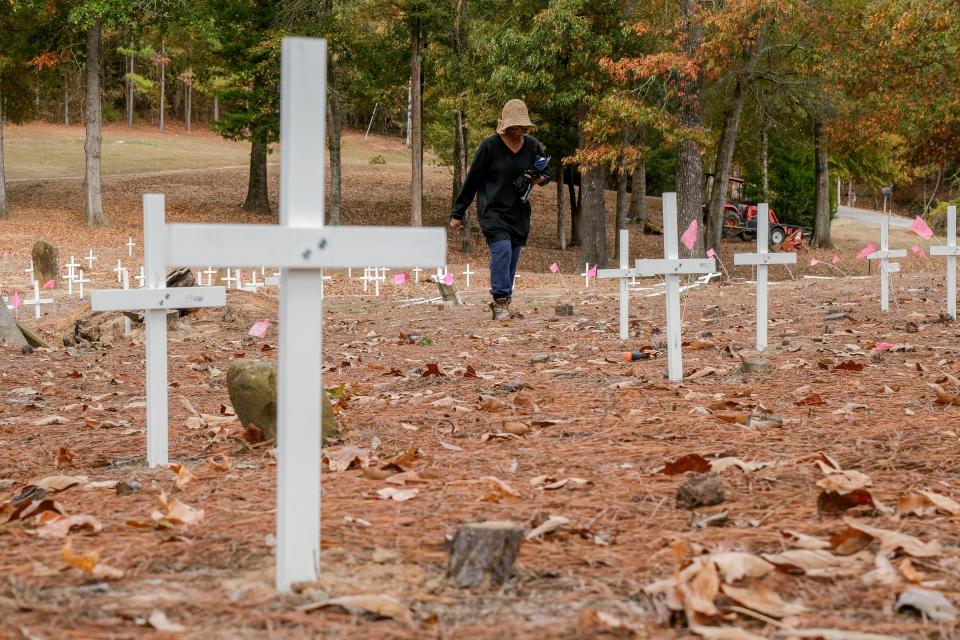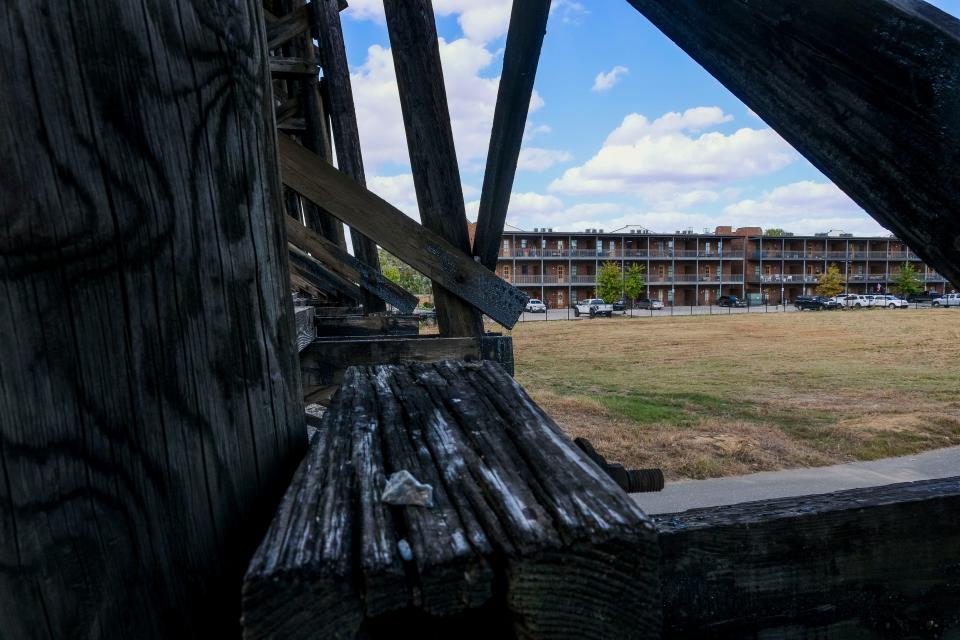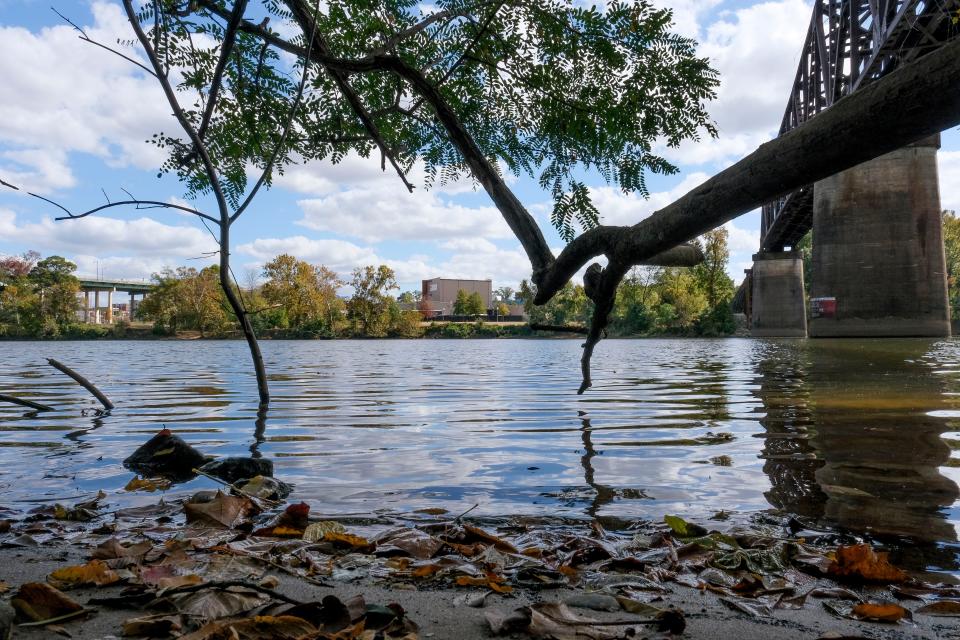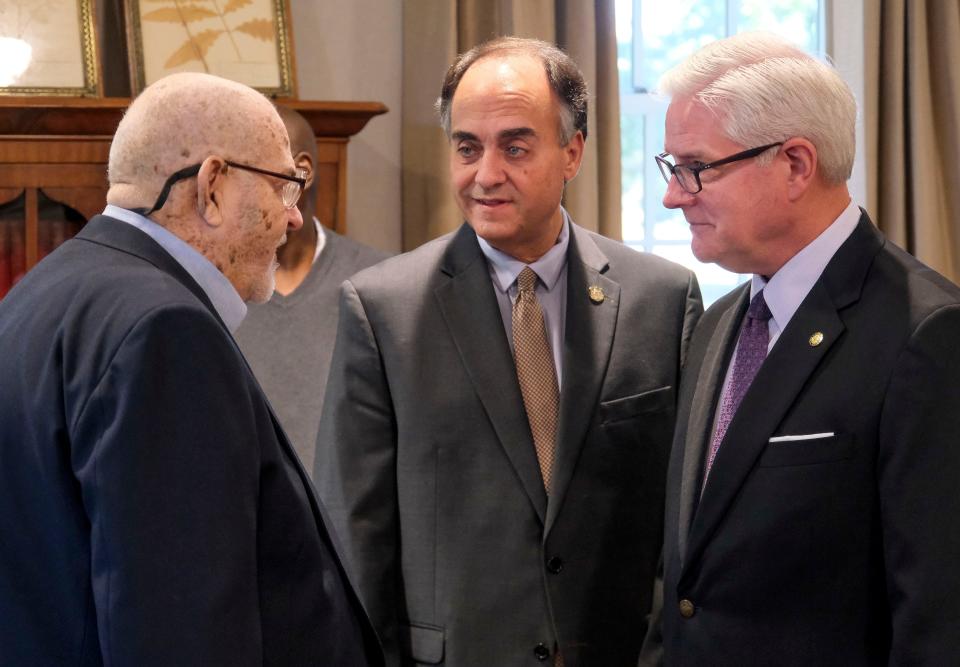Alabama's forgotten 'first road' gets new tourism focus
Pat Kemp set small white crosses in place in the Prewitt Slave Cemetery on the Old Byler Road in Tuscaloosa County on Thursday. Afternoon sunlight streamed through the trees crowning the knoll that overlooks Lake Tuscaloosa as she worked to give dignity to the graves of those who toiled in slavery during their lives.
"My great-great-grandfather and my great-great-grandmother are both buried here," Kemp said. Though she does not have the exact location of their graves, Kemp knows they are buried somewhere in the cemetery that sits on the west side of the Old Byler Road near the point where it crossed what was then Binion Creek.
Kemp's great-great-grandfather was Charlie Hagler who was owned by the Wiley Hagler family and her great-great-grandmother was Eliza Jane Prewitt Hagler who was owned by Johnny Prewitt. To this day, many of her family members still live along the Bull Slough Road which is very near the slave cemetery.

Kemp, the president of the Prewitt Slave Cemetery Association, said a recent effort by anthropology students from the University of Alabama had discovered 815-900 graves in the cemetery that was previously believed to have only held about 300-400 graves.
Such is life along the mostly forgotten Byler Road. Much that once existed has been lost, or forgotten, or swept beneath the rug of time. Restoring public awareness regarding the historic road is the goal of the men and women who are attempting to reignite public interest and knowledge of the first road designated by the Alabama State Legislature.
Members of the Byler Road Steering Committee, the Alabama State Legislature and the Alabama Department of Tourism are attempting to bring awareness and tourism dollars to communities along the historic Byler Road as they will erect historical markers along the route from the Tennessee River near Muscle Shoals to the Black Warrior River in Northport.
"The great thing about a project like this is that you could not make this up if it had not existed initially," said Lee Sentel, director of the Alabama Tourism Department. "The fact that this is the cornerstone of the development of the State of Alabama from its earliest days makes it unique. It think it is going to have long-term positive consequences."
"We really are looking back at this portion of our state's history and all the historic things that have happened and the people who lived along this trail in order to move forward and try to help ourself economically," said Tracy Estes, Alabama House District 17 Representative.

"We are preserving our state's history. This is the first road commissioned by the State Legislature ever. We are hoping to save our history and to build and propel ourself off that history and draw visitors into the region that will get off in our communities and spend some money to help strengthen those communities and to create growth in those areas."
A meeting held at the University of Alabama's Bryce House featured comments from Estes, Sentel, Alabama Senate Pro Tempore Greg Reed and Joel Mize of the Byler Road Steering Committee. The event kicked off a campaign to begin raising awareness of Alabama's historic road that is both present and absent in present-day Alabama. In many places, the original road has been subsumed by newer roads over time or bypassed and abandoned to be reclaimed by forests in West Alabama.

Byler Road was authorized by the Alabama State Legislature in 1819 and was constructed under the supervision of Captain John Byler between 1820 and 1823. It served as a toll road since it had to pay for itself. The legislature at the time of its authorization had no funds to build it. The roadway was very successful and was settled quickly. Early settlers included approximately 80 Revolutionary War veterans.
The road began on the Tennessee River along the west bank of Shoals Creek in Lauderdale County then ran south to its terminus on the Black Warrior River at what is now Main Avenue in Northport. Slaves contributed to the construction of the roadway as did at least a few of the Revolutionary War veterans who settled along it. The original road followed an ancient migration route once used by Woodland Buffalo that lived in Alabama.

"I think you are going to have a lot of members of the legislature and other local elected officials that are going to be interested in the promotion of some tourism attractions in north and central Alabama rather than just the focus on the coast," said Reed. "The Byler Road project just falls right in line with some of those tourist attractions (in northern Alabama) that's why we are spending a little bit of money to let people know. No one would know about the Byler Road if we were not involved in these kind of projects."
Reed said the opportunity to draw people into areas not previously considered tourist areas will benefit communities throughout north and west Alabama. People who travel the trail will spend money on gas, food, and lodging as they tour the Byler Road corridor.
This article originally appeared on The Tuscaloosa News: Alabama's forgotten 'first road' gets new tourism focus
